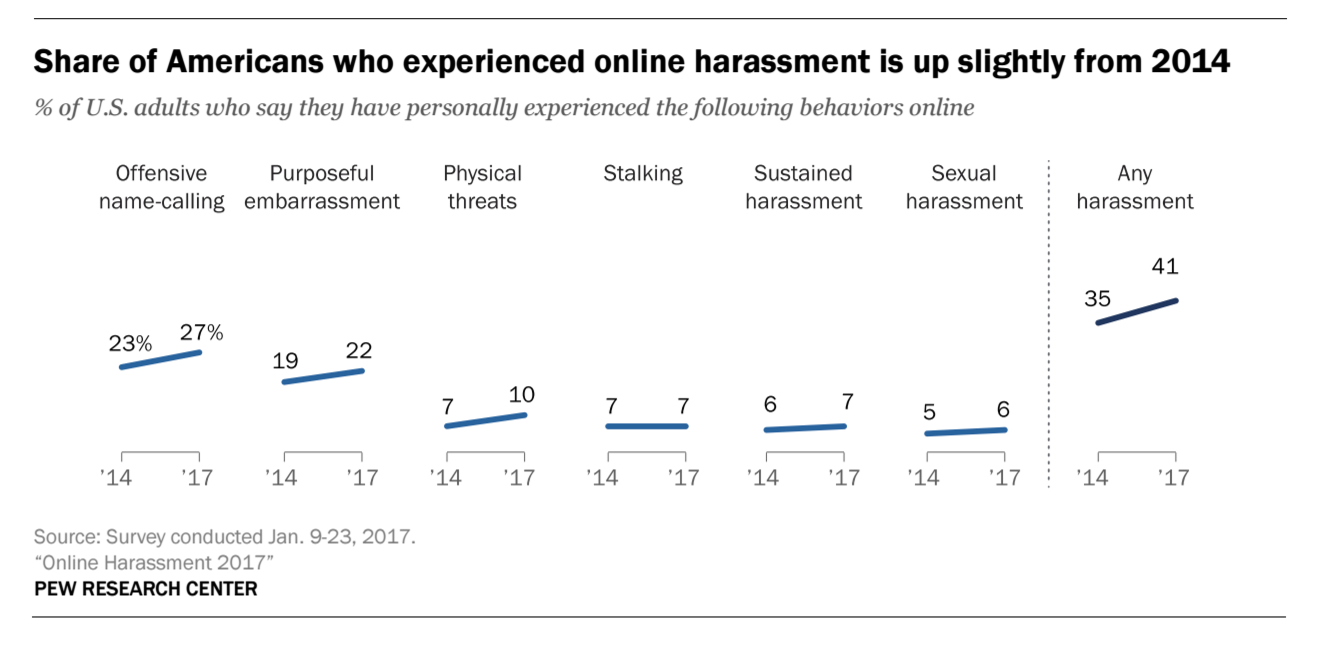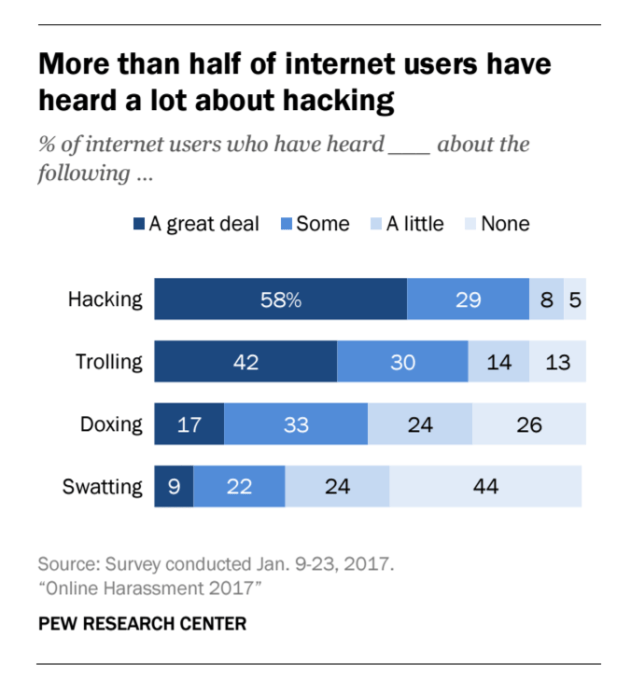Online harassment is an all-too-common occurrence in the U.S., with 41 percent of adults saying they have experienced harassment online, and 66 percent of people saying they’ve seen it happen to others, according to a new Pew Research Center study. The most common form of online harassment is offensive name-calling, according to the study.
It’s worth noting that while men are slightly more likely than women to be harassed online (44 percent versus 37 percent), women are more likely to be sexually harassed online. For example, 53 percent of women surveyed reported receiving explicit images they did not request.
Pew last completed a survey like this back in 2014. At that time, 40 percent of those surveyed reported experiencing online harassment and 73 percent reported seeing it happen to someone else. That means there’s been a slight increase in online harassment since 2014.

Unsurprisingly, social media is where people are most likely to experience online harassment, with 58 percent of those harassed saying the most recent incident happened on a social media platform. Also unsurprising is the fact that more than half of people harassed don’t know the person harassing them.
Social media platforms like Instagram and Twitter, for example, have taken steps to prevent harassment, but they’re not foolproof. Just yesterday, Twitter unveiled a tool to let you mute notifications from newly registered accounts, people you don’t follow and people who don’t follow you. And last year, Instagram launched anti-harassment tools for people with “high volume content threads.”
Despite certain steps taken by tech companies, 35 percent of those surveyed are still looking for them to combat online harassment with better policies and tools — saying it’s the most effective way to address the issue. And 79 percent of those surveyed believing that online services have a responsibility to step in and circumvent harassment.
On doxing, trolling, hacking and swatting
 Pew also explored “emergent” forms of online harassment, like doxing (posting someone’s personal information online without consent), trolling (intentionally trying to provoke or upset someone), hacking (illegally accessing someone’s accounts) and swatting (when you call 911 for a fake emergency and have the police show up at that person’s house).
Pew also explored “emergent” forms of online harassment, like doxing (posting someone’s personal information online without consent), trolling (intentionally trying to provoke or upset someone), hacking (illegally accessing someone’s accounts) and swatting (when you call 911 for a fake emergency and have the police show up at that person’s house).
“While many Americans are not aware of these behaviors, they have all been used to escalate abuse online,” the report states.
To be honest, I was not familiar with doxing or swatting before about a year ago. And it seems that other people on the internet have mixed knowledge and awareness about those forms of harassment.
While 95 percent of adults in the U.S. say they’ve heard of hacking, only 73 percent say they’ve heard of doxing and 55 percent have heard of swatting. Among the “emergent” forms of abuse, only 18 percent of those surveyed have experienced hacking and trolling.
There are 85 pages of content to explore in the report, which you can check out here.
